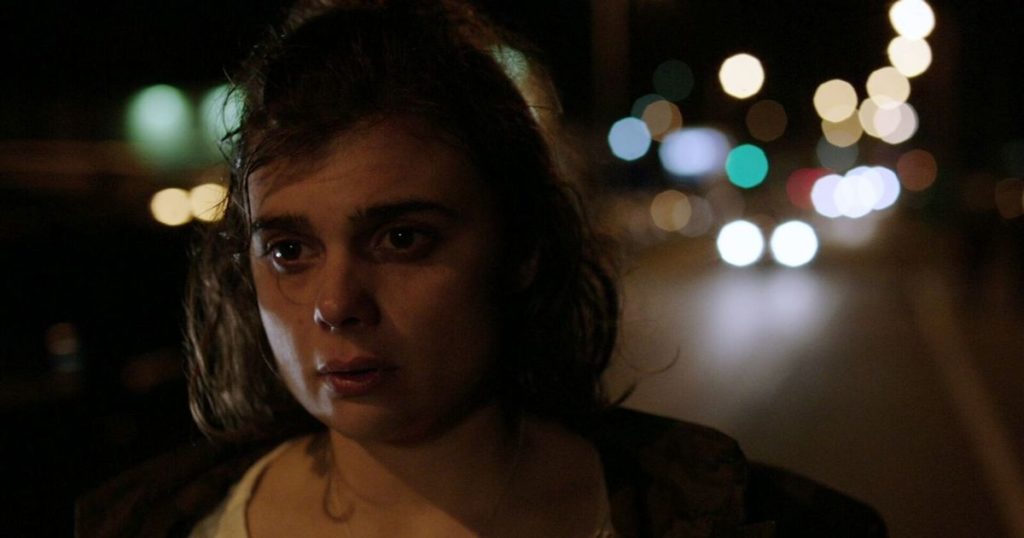 (3 / 5)
(3 / 5)
When one looks back over 2018, Keeping Faith is sure to come out on top in the world of Welsh television drama. It has been a huge success. Its latest stop on its incredible journey is primetime BBC One. It goes from strength to strength, and will certainly deserve all the accolades that come its way. In amidst all the hype of this brilliant series however, it has been easy to overlook another Welsh drama that has been airing over the past two months on BBC Wales and BBC Four respectively. Produced by the creator of another Welsh hit drama Hinterland, Ed Talfan, Hidden has been allowed to bubble away below the surface of Keeping Faith’s success. I would suggest that this is primarily because it is a crime drama. And though I would agree, to a certain extent, with some of the groans that accompany the thought of yet another one hitting our screens, it does at least offer something a little different. There is a slight spin on the achingly familiar.
The twist in Hidden’s tale is the revelation of the killer at the outset. The opening scene sees a girl running through the woods, pursued by an unknown man. This girl is subsequently found dead. The investigation that unravels across the whole of the series centres on finding this girl’s killer. Such a task is given to local detectives Cadi John (Sian Reece Williams) and Owen Vaughan (Sion Alun Davies). But whilst they are in the dark over the killer’s identity, the viewer is given unprecedented access into the life of Dylan Harris, played brilliantly by Rhodri Meilir. A strange, sensitive and brutalised figure, Harris lives with his mother and daughter in an old farmhouse deep within a forest of the Snowdonia National Park. It turns out that he is a serial abductor of young women. Having let his latest catch go, we witness his unsuccessful attempt at abducting a local farm girl. Then, as the pieces of the drama’s puzzle start to come together á la The Bridge, he claims the life of long-suffering student Megan Ruddock (a standout performance from Gwyneth Keyworth). What follows is a tense thriller that follows both the police investigation and Harris’ narrative simultaneously. As a result, it involves the viewer deeply in its various twists and turns over the course of its eight episode run.
Despite the fact that the central crime isn’t particularly original, Hidden remains worthy of some praise for the performances of two of its central actors: Rhodri Meilir and Gwyneth Keyworth. Episode four in particular, which is wholly focused on Dylan and Megan, is a deeply uncomfortable yet utterly compelling hour of television. It is made so by their noteworthy performances. Firstly, Meilir brings a vulnerability and gentleness to the role of Dylan that will be recognisable to fans of the sitcom My Family, in which he played the hapless Alfie. Yet this vulnerability and gentleness are subverted as a result of the abuse Dylan has suffered at the hands of his mother (Gillian Elisa). As a result, they manifest themselves in an extremely dark and dangerous way, far from the comforting confines of the Harper household. Meilir manages to express such complexity at the heart of his character in such a way that the viewer is both sympathetic yet repulsed by him. To extract such opposing emotions is testament to Meilir and his ability to play such a broken and complex figure. Meanwhile, Gwyneth Keyworth produces an emotionally raw performance as Megan, a student whose mental anguish (outwardly shown in the form of self-harm) is exacerbated by her abduction. It is an incredibly challenging role that Keyworth manages to embody wholeheartedly. As a result, she is powerfully believable as Megan. It is easy to forget sometimes, in the course of the series, that what is witnessed is a dramatic reconstruction. Keyworth plays it in such a way that it seems horribly real. For me, it is one of the most engrossing performances in a British TV drama this year.
With a stunning backdrop that shows off the bleak, mountainous terrain of North West Wales in all its magnificent and austere glory, Hidden may not be revolutionary but it is still worth watching. With some excellent performances from the cast and a slightly different take on the conventional crime narrative, it has enough going for it to keep viewers coming back for more. If you like your crime dramas dark and disturbing, then Hidden is certainly for you. It may not be Keeping Faith but it nevertheless showcases the fantastic talent coming out of Wales at the moment at every level, from production to acting, storytelling to editing. This is very exciting. With hopefully more fantastic ‘Made in Wales’ dramas to come, the Welsh TV landscape looks like going from strength to strength.
Click here to watch the full series.






 (4 / 5)
(4 / 5)
